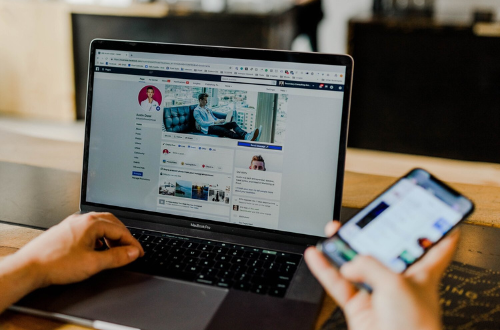5 Alternatives to Social Media (And Other Time Wasting Apps)
6 minute read!
Alternatives to Social Media
Social media is the way we connect with friends, family, and the world. We get information at lightening speeds, keeping us informed and connected. Unlike most human inventions, it is highly accessible. So accessible that anyone with a device and internet connection can use it.
In the last few years, research has found that despite the connectedness that social media offers, the results are the opposite. Social media has been found to increase depression, anxiety, loneliness, self-harm and suicidal thoughts.
Many of us have said, “Where did my afternoon go?“ Or, “Why am I so annoyed right now?” after some time on social media.
What is the different between time wasting apps and social media?
An easy way to think about this: all social media apps are time wasters, not all time wasters are social media. Social media: Instagram, TikTok, Facebook, Snapchat, dating apps, etc. Time wasters (in my opinion): Reddit, news outlets, game apps, etc.
Sadly, despite being the most stressed we have ever been, our emotional exhaustion causes us to seek out distraction as we desperately search for ways to connect. Below are some time tested alternatives to social media (and other time wasting apps).
1. Community memberships.
As mentioned above, social media can offer you a sense of community and connectedness that you may crave (especially now). Sites like Meetup and citysocializer offer opportunities for like minded folx to get together and engage in an activity they enjoy.
Another option - does the field you work have a national association? Plenty of nationwide associations have local chapters, provide resources and hold yearly conferences meant to give new education in the field and provide networking opportunities. You can also participate in your local government, go to classes at your gym (safely) or even find a place of worship (if that’s your jam).
2. Reading.
Some of us can feel intimidated by reading. Maybe your comprehension is a sensitive topic, maybe a disability prevents you from enjoying it thoroughly. Thankfully, technology now provides many alternatives to the classic book reading.
Unlike social media, reading benefits our physical and mental health. It strengthens your brain, improves your empathy, builds your vocabulary, slows age-related cognitive decline, lessens depression, improves sleep, etc.
Best part? You can read whatever you want! In the form of paper/hard backs, Kindle, or the above alternatives, you can read comic books, romance novels, online blogs, adventure, sci-fi, activism readings, graphic novels, religious texts, educational texts, history, etc. Similar to social media filters, you can curate your reading based off what content you want to take in.
3. Puzzles, games, brain teasers.
My favorite activity during Dry January of 2020 was puzzles. Two months later, Philadelphia issued a stay-at-home order, which meant more puzzles, rewatching True Blood in the background and recognizing the size of my dining room table.
Studies find that increased screen time leads to multiple health concerns. Thankfully, activities that reduce/eliminate screen time improve both your mental and physical health. Whether you are getting into puzzles, an escape room in a box, or a Rubik’s cube, these single or group play activities provide a healthy, fun alternative to social media.
4. Talking on the phone.
Phones calls improve connection and intimacy with loved ones while cutting out the stress that comes with juggling and maintaining multiple apps on your phone at a time.
Not comfortable talking on the phone? That’s OK, and it’s normal. It is not something that is done a lot anymore, so it may feel strange. Just so, phone calls are better for communication and story telling than text messaging, and it gives us the connection that we crave from social media.
Feeling intimidated or not wanting to get pulled into an hour long phone conversation? The more you call others, the less tiresome it will feel and the more rejuvenated you will be afterwards. Also, if you speak to someone regularly enough, you will not need to give life updates for the past 6 months. See how that works?
5. Meditation.
Wait! While meditation may seem intimidating and inaccessible (it was hard to to find an image with someone not sitting on a beautiful beach holding an Tibetan singing bowl in expensive yoga clothes), all you really need is 5-10 minutes and a comfy place to sit.
Like physical exercise, meditation becomes easier the more you do it. What are the benefits? Why try something new and scary? Well, meditation is proven to reduce stress, lessen anxiety and depression depression, improve sleep, increase your self-awareness, increase patience, decrease pain, aid in addiction recovery, lower blood pressure, etc.
The best part is, you can really do it anywhere. I’ve meditated on the bus (while keeping aware of my surroundings), on airplanes, while in the passenger seat of a car, while walking, between sessions…basically anytime you would pull out your phone, you can meditate. Sounds like a challenge!
Don’t have a quiet space? Have kids/pets/other living things running around and making noise? Meditation teaches you how to quiet the mind when your environment cannot be. Wild, huh?
Here are some of my favorite FREE resources. Most apps like Headspace and Calm have a few beginner meditations available without the pro purchase. YouTube is a wealth of content including Goodful and Great Meditation.
Thank you for reading!
Email contact@teletherapywithsarah.com with questions/comments/concerns.
Pennsylvanians - ready to start therapy? Reach out to contact@teletherapywithsarah.com for a free 15 minute consultation.
Very Best,
—Sarah
*Disclaimer - This piece is being written by a straight, cis, able-bodied, white woman. Intersectionality (coined by lawyer, civil rights advocate, scholar and philosopher Kimberlé Crenshaw) tells us that ethnicity, class, sexuality and gender that differ from the above identifiers encounter more hardship and oppression.*
Find a therapist:
includsivetherapists.com
therapyden.com
zencare.co
thrivingcampus.com
*National Suicide Prevention Lifeline
Hours: Available 24 hours. Languages: English, Spanish. Learn more
800-273-8255





